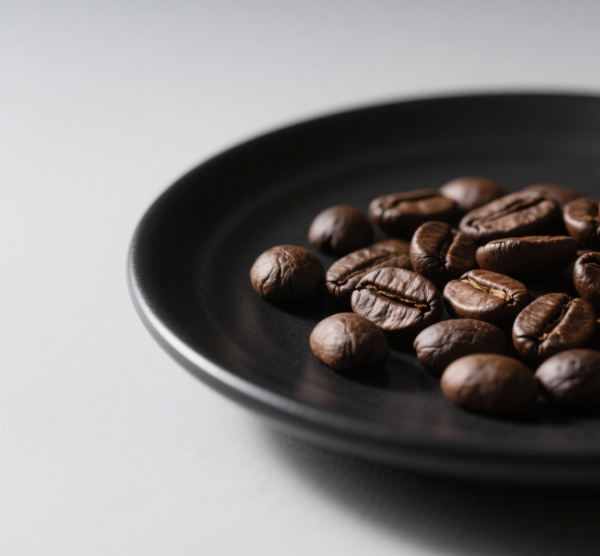
TIEGUANYIN TEA
August 22, 2025
GONGMEI TEA
August 22, 2025CATIMOR COFFEE BEANS
$118.80 Original price was: $118.80.$115.80Current price is: $115.80.
Born from a deliberate cross between two resilient varieties—Caturra (a high-yielding Arabica) and Timor (a robusta-arabica hybrid)—Catimor coffee beans were developed in Portugal in the 1950s to address two critical challenges: disease resistance and productivity. This hybrid thrives in diverse environments, from Central and South America to Southeast Asia and Africa, adapting particularly well to regions where coffee leaf rust poses a persistent threat. Its robust genetics allow it to flourish at elevations ranging from 800 to 1,400 meters, a broader range than many pure Arabicas, while tolerating higher temperatures and variable rainfall patterns, making it a versatile choice for farmers in challenging climates.
Distinctive Flavor Profile
Catimor offers a balanced, approachable profile that bridges the gap between Arabica’s brightness and Robusta’s structure. On the palate, it delivers moderate acidity with citrusy hints—often lemon or green apple—paired with a nutty sweetness that leans toward almond or hazelnut. The body is medium to full, with a smooth mouthfeel that carries subtle chocolate or caramel undertones, while a mild, pleasant bitterness emerges in the finish, adding depth without overwhelming. When brewed, the liquor 呈现 a warm amber hue, with a clarity that reflects its Arabica heritage and a viscosity that hints at its Robusta roots. This versatility makes it a popular choice for both single-origin offerings and blends, where it adds consistency and structure.
Cultivation Advantages
Catimor’s hybrid vigor translates to significant agricultural benefits, explaining its widespread adoption:
- Disease Resistance: Inheriting Timor’s resilience, it stands up to coffee leaf rust and other fungal diseases, reducing the need for chemical treatments and ensuring more reliable harvests.
- High Yield: Produces abundant cherries—often 30-50% more than traditional Arabicas—thanks to its Caturra lineage, making it economically attractive for large-scale farms.
- Adaptability: Thrives in marginal conditions, including lower elevations and less fertile soils, expanding the range of viable coffee-growing regions.
- Uniform Ripening: Cherries mature consistently, allowing for efficient harvesting—either by hand or machine—without sacrificing quality.
These traits have made it a staple in countries like Vietnam, Brazil, and India, where it supports both smallholder farmers and industrial operations.
Processing and Variation
Catimor responds well to standard processing methods, with outcomes that vary based on technique:
- Washed Process: Enhances its citrus acidity and clarity, producing a clean cup with pronounced nutty notes—ideal for filter coffee.
- Natural Process: Infuses deeper fruitiness, with hints of dried berries or stone fruit, and a slightly higher sweetness, suited to darker roasts.
- Honey Process: Strikes a balance, highlighting both brightness and body, with a honeyed sweetness that complements its nutty core.
Post-processing, Catimor beans are medium-sized with a slightly irregular shape and a light to medium green color, reflecting their hybrid composition.
Brewing Versatility
Catimor’s balanced profile adapts well to various brewing methods:
- Filter Coffee: Shines in pour-over or drip methods, where its acidity and nutty sweetness come forward. Use a medium grind, water at 90-92°C (194-198°F), and a 1:17 ratio for a bright, balanced cup.
- Espresso: Adds crema stability and a smooth finish to espresso blends. A fine grind, 92-94°C (198-201°F) water, and 25-30 second extraction highlight its chocolate and caramel notes, making it a reliable base for milk-based drinks.
- French Press: Its medium body and nutty depth excel in full immersion. A coarse grind steeped for 4-5 minutes at 95°C (203°F) brings out its richness without excessive bitterness.
Regional Expressions
While consistent in character, Catimor reflects its terroir, with subtle variations across growing areas:
- Vietnamese Catimor: Often processed as wet-hulled, developing earthy undertones and a smoother, more mellow profile, perfect for traditional phin brewing.
- Brazilian Catimor: Emphasizes chocolate and caramel sweetness, with lower acidity, thanks to the country’s warm climate and fertile soils.
- Indian Catimor: Shows brighter citrus notes and a spicier finish, influenced by the subcontinent’s monsoonal climate and high-altitude growing regions.
Storage and Freshness
Like most Arabicas, Catimor retains peak flavor for 4-6 months when stored in airtight containers away from light, heat, and moisture. Its moderate oil content means it resists staling slightly longer than high-arabica varieties, though grinding just before brewing remains essential to preserve its aromatic complexity.
Catimor represents the power of agricultural innovation, proving that hybrid varieties can deliver both quality and resilience. Its balanced flavor, cultivation advantages, and adaptability ensure it will remain a cornerstone of the global coffee industry, bridging tradition and progress in every cup.
Category: COFFEE BEANS
| Weight | 0.5 kg |
|---|
Store
Price
Details
WILD TEA TRADE
0 out of 5
0 out of 5
0 out of 5
0 out of 5
0 out of 5
0 out of 5
0 out of 5
0 out of 5
0 out of 5
0 out of 5
0 out of 5
0 out of 5
General Inquiries
There are no inquiries yet.








